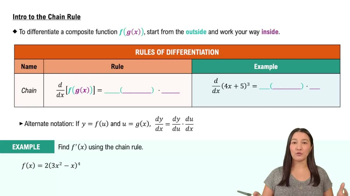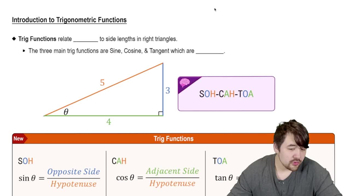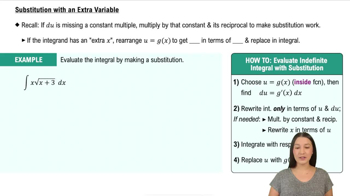Find the derivatives of the functions in Exercises 1–42.
𝓻 = ( sin θ )²
( cos θ - 1 )
 Verified step by step guidance
Verified step by step guidance Verified video answer for a similar problem:
Verified video answer for a similar problem:



 5:02m
5:02mMaster Intro to the Chain Rule with a bite sized video explanation from Patrick
Start learning